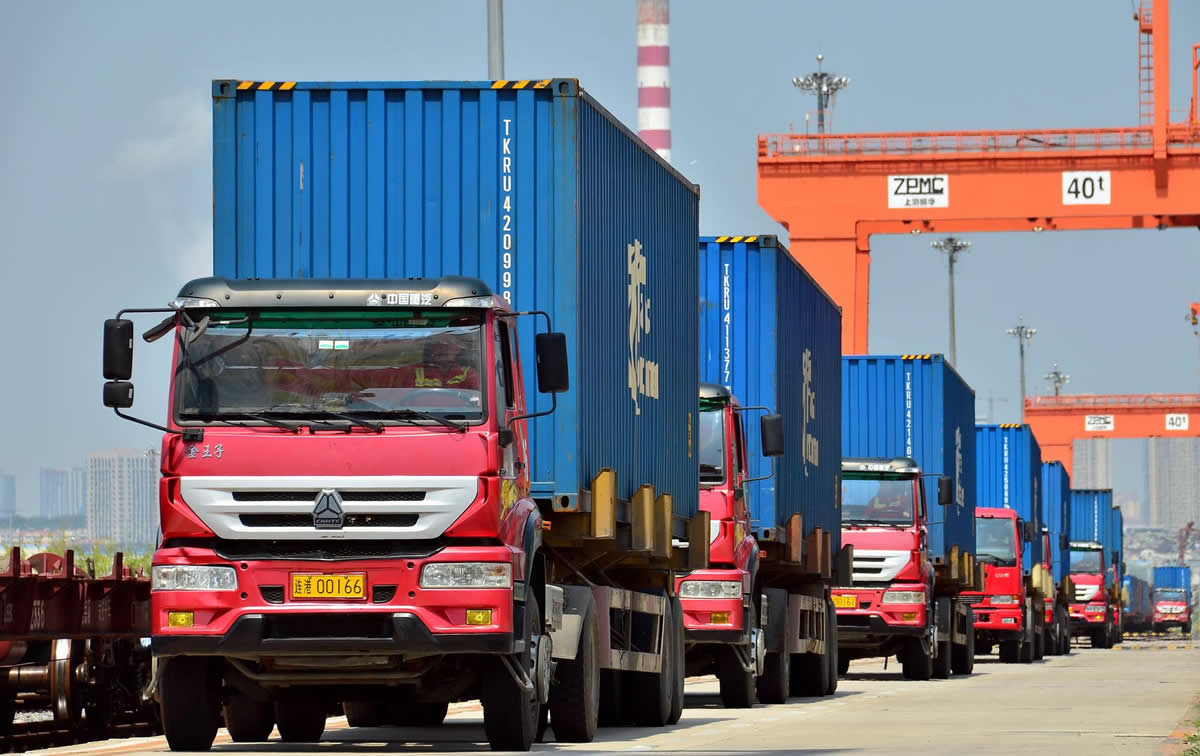
International transport service trade mainly refers to the trade activities which take international transport service as the object of transaction. It is carried out between the parties of different countries. One side provides transport services to the other side in order to realize the transboundary movement of goods or passengers in space and the other side pays the agreed remuneration.
International trade in transport services can be divided into two categories: international trade in goods transport services and international trade in passenger transport services. However, whether it is cargo transport or passenger transport, international transport services are manifested as a contractual relationship. One party to the contract is the shipper or passenger of the goods, and the other party to the contract is the carrier (shipping company, railway transportation company, airline company, etc.). The basic rights and obligations stipulated in the international transport service contract are: the carrier carries the goods of passengers or shippers to the agreed place within the agreed period (the carrier also delivers the goods to a specific consignee in the carriage of goods); the passengers or shippers pay the agreed fees to the carrier in the agreed manner.
International trade in transport services can be adjusted not only by the domestic laws of relevant countries (such as contract law, maritime law, etc.) and the case law of relevant countries, but also by international treaties and international practices.
International trade in transport services has three main characteristics:
1. Trade in transport services derives from commodity trade.
2. If the supplier of transport service does not produce tangible products, there will be no products to be stored, and only transport capacity can be stored.
3. In the trade of transport services, the activities of intermediaries or agents are very active and play an important role in the development of trade.
The emergence of trade in transport services is compatible with the development of social productive forces. With the continuous development of commodity production and the increasing scope of exchange, trade in transport services has also been developed accordingly, and the development of trade in transport services has provided the possibility and convenience for international trade to open up a broader market. Therefore, the transport service industry plays the following main roles in the national economy:
1. To improve the balance of payments
Taking maritime transport services as an example, this paper discusses the role of maritime transport services in improving the balance of payments in China's import and export trade.
Firstly, under the condition of FOB, freight is paid by foreign importers. If shipped by our shipping company, we can get a foreign exchange income.
Secondly, when CIF is used in China's exports, the freight will be paid by our exporters. If shipped by our shipping companies, the freight will be paid by our exporters to our shipping companies, that is, the transfer of funds between domestic companies. At the same time, China's exporters can recover the freight by collecting CIF from foreign importers, thus earning a considerable amount of foreign exchange freight revenue.
Thirdly, when FOB is used in China's imports, the freight will be paid by our importers. If shipped by China's shipping companies, freight will also be transferred between domestic enterprises, and no foreign exchange earnings will occur. But this saves foreign exchange payments to foreign shipping companies for freight.
Fourthly, when CIF is used in China's imports, foreign exchange freight has been included in the payment of CIF by Chinese importers to foreign exporters, and then paid by foreign exporters to carriers. If shipped by our shipping company, the foreign exchange freight paid to foreign exporters will be recovered, which is a saving on foreign exchange expenditure.
The above discussion is only about the role of transport services for domestic import and export trade in improving the balance of payments: as for the role of third-country transport (i.e., transport services for trade between other countries) in improving the balance of payments, it is more obvious.
2. Transport service trade is the bridge and link of international commodity trade and service trade.
All goods in international merchandise trade must be transported in order to move from the export position to the import location. International transportation is one of the indispensable important links in the process of international merchandise trade, and it is also the bridge and link of international merchandise trade. Whether the transportation links are carried out smoothly or not, the speed, safety, reliability and price of transportation have an important impact on the scope and scale of commodity trade.
International transport is also closely related to international trade in services. On the one hand, international transport services themselves are an important part of international trade in services. On the other hand, among the four modes of international trade in services, there are three other modes of provision (consumption abroad, commercial existence and natural person movement) besides the mode of cross-border delivery. It is necessary to rely on international transport services as a means and tool to provide services.

Subjects and Objects of International Carriage Services
The main body of international freight transport service is the supplier and consumer of transport service. The provider of transport services usually owns a means of transport and is responsible for transporting goods from a place in a country to the carrier at the destination. Consumers of transport services are often sellers or sellers in international trade of goods. They need to use the carrier's means of transport to deliver goods sold or purchased from the place of origin to the destination through the carrier's transport services. They are generally referred to as shippers. In addition to shippers and carriers, there are also parties involved in the ancillary work of international cargo transport services, which mainly include various agents. Among them, there are mainly cargo agent who handles consignment formalities as shipper's agent and agent who takes over transportation service business as carrier's agent or assists in other matters entrusted by carrier. In addition to agents, it also involves managers of various infrastructure and ancillary facilities required for transport services, such as ports, stations, wharfs, airports, warehouses, yards and other facilities. They are not providers of cargo transport services, but they are indispensable in the process of international cargo transport services. Lack of.
The object of international cargo transport is transport service, not the goods transported. The rights and obligations between the parties are all centered on the object of transport services, not on goods.
According to the different modes of transport services, international freight transport services can be divided into maritime freight transport services, air transport services, road transport services, railway transport services, pipeline transport services and international multimodal transport services. However, among all the above modes, marine cargo transport service is the most important one, which accounts for more than two-thirds of the total international cargo transport volume.
|





